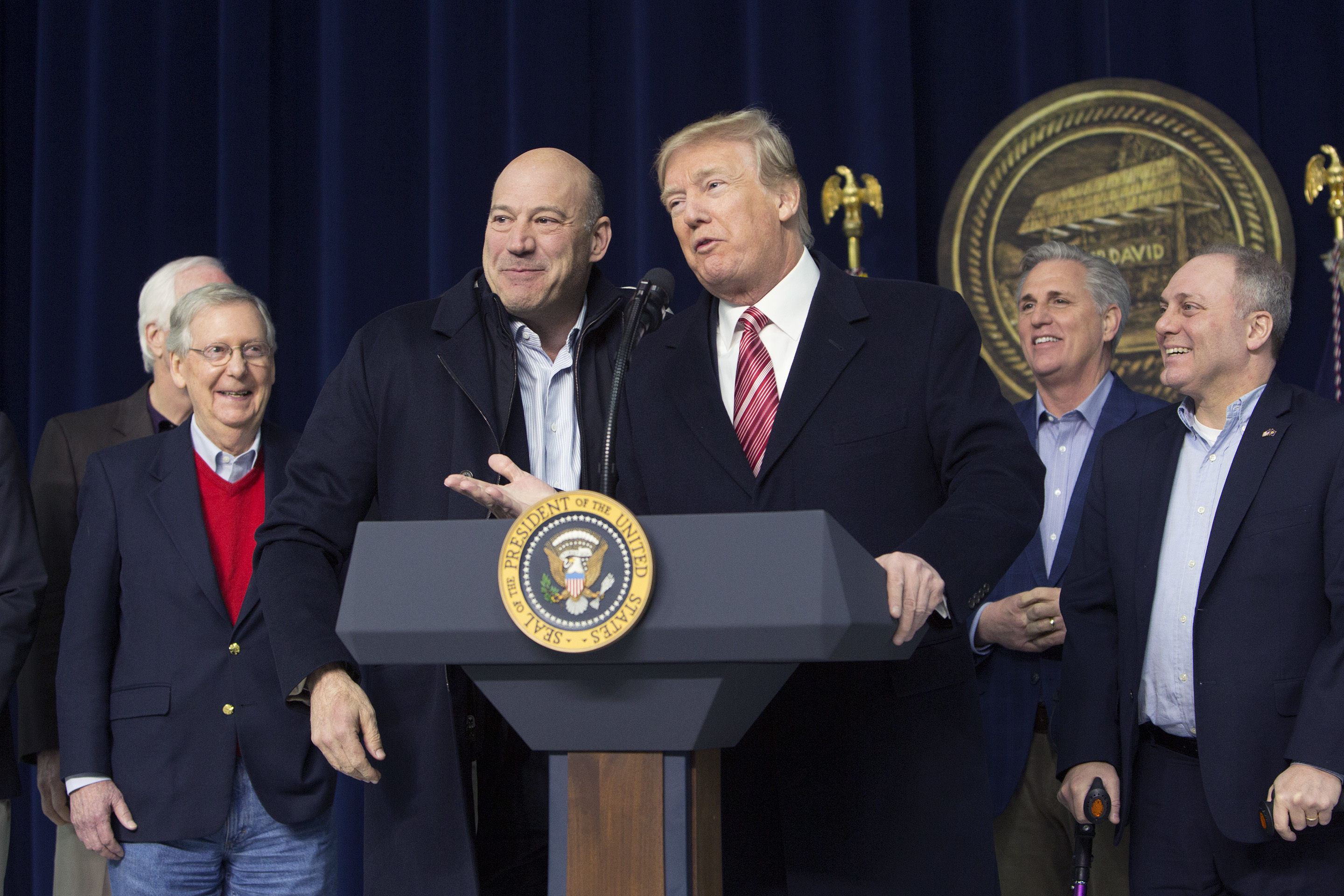The week’s resignation of Gary Cohn, the Trump administration’s senior economic advisor, should concern Minnesotans. A respected voice for free trade, Cohn’s departure cedes ground to the Administration’s protectionist, nationalist trade warriors: Commerce Secretary Wilbur Ross and China- bashing economist Peter Navarro. Trade wars are especially bad news for multi-national corporations and grain exporting farmers, two of Minnesota’s economic pillars. While talk of tariffs brought cheer on the Iron Range, the hit to manufacturing always far outstrips any employment gains felt in domestic steelmaking. China, not Canada, is the target, and tariffs aren’t the weapon.
Yes, the U.S. needs to maintain a domestic steel industry—and it does. There is no defensible case, however, for a national security carve-out of our WTO commitments, except perhaps in the area of specialty steels—a very small exception. Using steel and aluminum as a NAFTA bargaining chip against Canada, our neighbor and largest trading partner, is needlessly offensive. Why antagonize our friends, especially when the real issue with steel pricing isn’t Canada, Mexico, the UK, Germany, but China?
The Chinese don’t supply much of America’s steel, but their massive production sets global prices for many classes of steel products. By making a commodity—steel—more expensive for U.S. manufacturers, the Trump tariffs would cause American companies to lose competitiveness. American manufacturing jobs are lost. Our friends and allies, meanwhile, are very unhappy.
Steel will never return in a big way to any American city for two reasons. First, the Chinese can make steel cheaper than we can. Chinese steel is cheap largely because it has overcapacity and its non- unionized, state-owned steel companies receive generous government support.
The second reason why the smokestacks of Pittsburgh are gone forever is that the Chinese people haven’t (yet) reached the consensus that Americans reached in the 1960’s: that the dreadful pollution which goes with steel production is too high a price to pay.
So should we care that China can, for the moment, produce environmentally impacting commodities like steel cheaper than we can? No! Let them! Americans will breathe clean air while they caper down Wal-Mart aisles stocked with affordably priced goods made with cheap Chinese steel.
There is a better way to move in useful directions on trade and the Chinese, darn them, are taking it. They have taken a page out of Japan’s post-war playbook. In the 1950’s Japan, a country with limited natural resources, recovered from the war’s devastation by nurturing nascent advanced industries: electronics, optics, autos. These moves created the global industrial empires of Sony, Panasonic, Toyota, Datsun (now Nissan), Nikon and Canon. China is nurturing clean energy, semiconductors, artificial intelligence and manufacturing automation. So should we.
We got many things wrong about China. We thought WTO accession would lead China to adopt market-based mechanisms. But they’ve taken the market access, while largely blocking reciprocal access by foreign firms and investors. We thought the Internet would open up China’s closed information society. Wrong again. The government—through immense effort– has achieved full control of cyberspace in China. Finally, we thought that contact with Western institutions and culture would move China in a more liberal—even democratic– direction. News that China is amending its constitution to provide for the indefinite rule of its president arrived like a footnote at the end of a long, sad sentence. It is time to completely re-assess our relationship with China.
American universities—the world’s finest (though by no means the world’s most affordable) provide the U.S. with a unique competitive advantage in a cut-throat global knowledge economy. Some people want to examine the strategic cost of providing a world-class education to China’s brightest young people. I teach Chinese students in Chinese universities every year. With a few exceptions, their universities can’t hold a candle to ours. And I understand why American universities aggressively recruit Chinese students. Declining enrollment and gutted state support for public higher education sends our universities looking for new revenue sources. Chinese families pay full out-of- state tuition to American schools without batting an eye. Their children study hard, stay out of trouble—and then go home with an education far superior to anything they could get at all but a handful of China’s most exclusive universities. Would the Chinese share such a strategic national treasure as generously as we do? It is worth discussing.
We can’t meet our challenges by going backwards in industrial history or and using clumsy, counter- productive measures like tariffs. We must move past the smokestacks and low-skilled jobs of the 1960’s and invest in strategic industries and the advanced technical education required for U.S. workers. It is time for the U.S. to move beyond the strategies and tactics of battles long past and get smart—especially about China.

